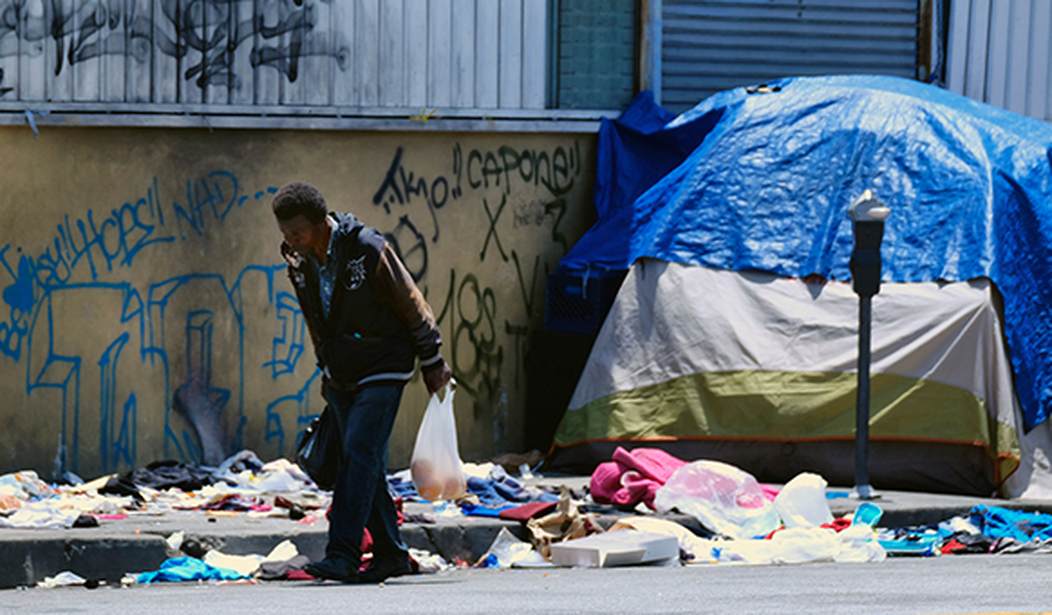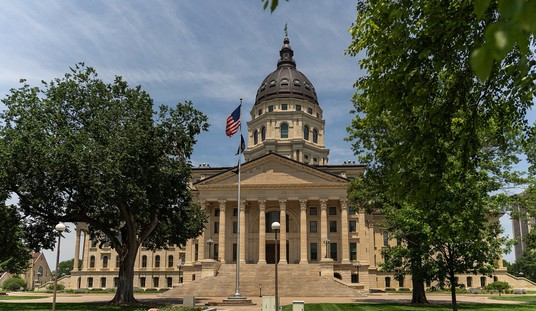Homelessness seems to be a bigger issue every time one turns one’s attention to it. While the Left Coast cities of Los Angeles, San Francisco, Portland, and Seattle, along with their suburbs, are the main focus of attention in this discussion, it happens in other places too — including Anchorage, where winter temperatures can descend into the teens and twenties below zero. As with so many things in Alaska, the sources of and solutions to the problem are a little different from the balmy states of California, Oregon, and Washington. But the symptoms are very similar, and just as in the Forty-Eight, the problem in Anchorage has local property owners agitated. There is, of course, one big difference between Anchorage and the other cities troubled with the homeless, and that is geographic in nature. Alaska is separated from the Forty-Eight in a way that prevents in- or out-migration by homeless people attracted to or repelled by whatever policies Anchorage may choose. The city, indeed, presents an ideal test-bed, with, if you’ll forgive the metaphor, a captive audience.
A group of property owners who call themselves the “3rd Avenue Radicals” say that crime has gotten to the breaking point in their area of Anchorage.
And by breaking point, they don’t only mean windows being broken, but graffiti, bike-theft rings, stolen vehicles, open illegal drug trades, public inebriation, and more.
The group said on Facebook that it’s sending out an SOS. They are unimpressed with the efforts of the mayor and Assembly alike and they want the community to rally to their cause.
“We are sending out an SOS! “The residents and business owners of East 3rd Avenue are currently being victimized on a daily basis by individuals who have moved in and taken over the former Native Hospital Site at 3rd and Ingra,” wrote the 3rd Avenue Radicals on their Facebook page.
“We have criminals living and hiding amongst our most vulnerable, finding protections from their crimes by the MOA’s fear of Martin VS. Boise,” they wrote, referring to the Supreme Court upholding a Boise, Idaho lawsuit by six homeless plaintiffs against the city’s anti-camping ordinance.
“In the past 24 hours business/property owners have had their truck broken into and wallet stolen, windows shot out with a BB gun, and buildings tagged by the criminals operating a bike chop shop on the site (which was reported directly to the Mayor over a month ago, no action). A local towing company dumped a burned out junk car on the site which had since been removed, only after a resident involved APD. (All this in just in the last 24 hours),” the group wrote.
As with the West Coast cities below us, this problem has business owners rethinking a lot of their commercial strategies. But Alaska is its own place, with its own problems, and the source of a significant number of Anchorage’s homeless isn’t the city itself or the lower Forty-Eight. There are a lot of Alaskan Natives on the street, and they have their own issues.
Alaska Natives make up about 15% of the state’s overall population, according to 2020 US Census data. According to numbers compiled by the Institute for Community Alliances (ICA) in August 2022, Alaska Natives represent over 40% of the homeless population in Anchorage.
“We also track, and look at, who are people working minimum wage jobs and renting apartments, and you see a higher number of Alaska Native people in that group and you see a higher number of people with disabilities in that group and you see a higher number of elders,” Hutchisons said.
While it’s not clear why the state’s Native population is disproportionately homeless, they are also disproportionately affected by alcohol and drugs. That in itself may yield some insights.
What’s notable about Anchorage’s reaction, though, is how similar it is to the West Coast cities named above. The 3rd Avenue Radicals continue to point out:
“When you express your concerns to the Mayor, Assembly, Code Enforcement, APD, we get a lot of excuses why nothing can be done. The Chief of Police even gave residents a lecture at a recent meeting at city hall about how we should be performing citizen’s arrests! WE should be arresting the criminals!” the group wrote. “The people and businesses of East 3rd Avenue are currently being sacrificed. The reputations of our businesses tarnished severely, and no one is doing anything about it.”
That sounds a lot like what you hear from folks living in the big West Coast cities when discussing this issue. Personal observation: My wife and I drove through Anchorage recently, returning from Seward to the Susitna Valley. The homeless camps were in evidence, and several street corners had panhandlers seeking contributions. Whatever the Anchorage Assembly is doing, the homeless camps are still there. Last winter, the city allowed the homeless to shelter in Sullivan Arena, which may well have prevented some deaths from exposure. But all the city is doing, again like the cities on the West Coast, is treating symptoms. And the people are getting fed up.
The current problem with homelessness won’t be resolved until the actual root causes of homelessness are identified and addressed. Among the homeless, the mentally ill must be evaluated, treated, and institutionalized if necessary. The addicted must be treated and restored to sobriety. The homeless who are on the streets for financial reasons (and I suspect these are a minority of the overall homeless population) should be entered into such occupational training or other education that will return them to being productive citizens and should be required to work while in those programs.
Government only has one real job: to protect the citizen’s liberty and property. In throwing chaff at the homeless issue, the various city and state governments are failing in that fundamental responsibility. More effective policies addressing homelessness and the increasing numbers of street people are not just desirable but mandatory, and governments must discover what actually works rather than just applying more window-dressing. Anchorage, being a small city that is isolated from the rest of the country in a way that disallows migration, would seem to be the ideal test-bed for such policies.















Join the conversation as a VIP Member